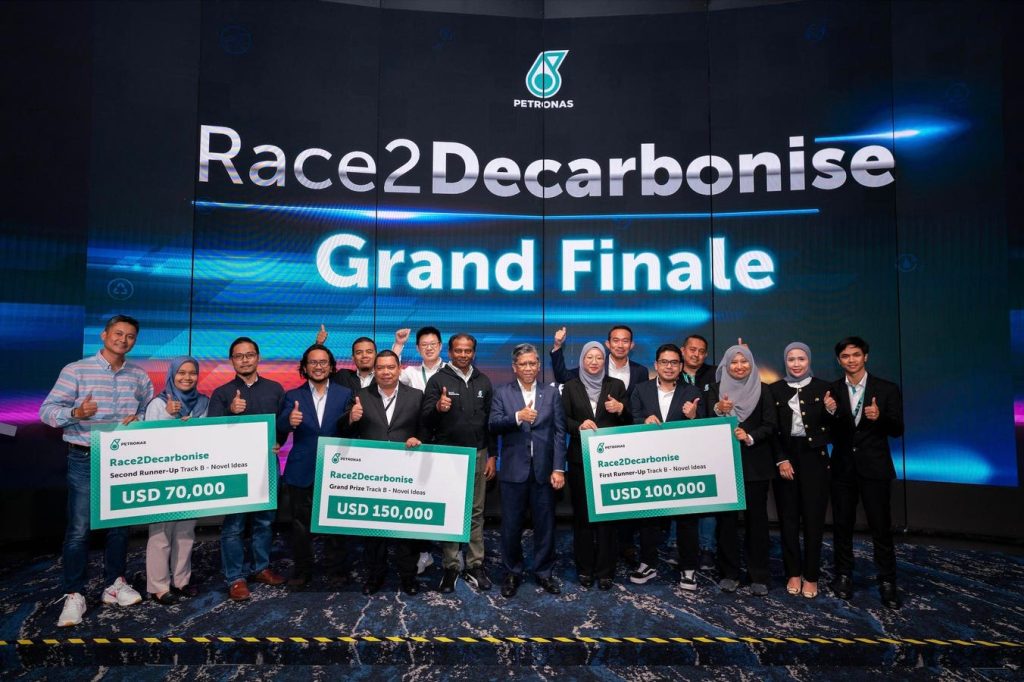PETRONAS is furthering its commitment to achieving net zero carbon emissions through innovative practices, fostering green economy growth and promoting collaboration.
PETRONAS Group has responded to the climate change crises by aligning its business goals with global sustainability principles. In 2020, it announced its intentions to achieve Net Zero Carbon Emissions by 2050 (NZCE2050).
Since then, PETRONAS, which has presence in more than 100 countries, has recognized the need to accelerate energy transition to lower carbon production while reducing greenhouse gas (GHG) emissions. Emissions reduction, in fact, has been its pursuit for a decade; since 2013, PETRONAS has cumulatively reduced 18.1 million tonnes of carbon dioxide equivalent (MtCO2e) of GHG emissions from the implementation of decarbonization activities throughout PETRONAS Group-wide operations.
Building on this momentum, PETRONAS launched the NZCE2050 Pathway in November 2022, which sets clear and solid short-, medium- and long-term targets to reduce GHG emissions. The Pathway also supports Malaysia’s net zero emissions by 2050.
PETRONAS is racing to decarbonize to meet its targets, starting with aiming to cap GHG emissions at 49.5 MtCO2e by 2024, covering Scope 1 and Scope 2 emissions for its operations in Malaysia.
The group, through various existing and planned emissions reduction projects, is determined to meet the near- and mid-term emissions targets for its global operations, spanning the upstream, downstream, gas, project delivery, and technology value chain. The pace of this race continues to accelerate.
Energy Transition Gains Momentum
PETRONAS is committed to ensuring energy security for Malaysia, in addition to its efforts in providing comprehensive solutions on a global scale, which drives its continued production and growth. “It is our commitment to deliver our ‘Amanah,’ or trust, to safeguard and manage the nation’s hydrocarbon resources responsibly for the people and the country,” says Sabah-born Bacho Pilong, PETRONAS Senior Vice President of Project Delivery and Technology, who is also a member of the PETRONAS Executive Leadership Team with an energy-related career spanning 30 years.
In meeting stakeholders’ needs, PETRONAS intends to enhance its role in energy transition by focusing on both energy security and the responsible delivery of energy solutions. As such, PETRONAS has adopted an energy transition strategy to encompass its core production business while capturing new growth opportunities, all while responsibly managing carbon emissions.
“Serious about making such shifts for the better, PETRONAS aims to set aside 20% of its total capital expenditure to ramp up decarbonization and renewable energy development from 2022 to 2026,” says Bacho.
Decarbonizing Comprehensively and Progressively
PETRONAS’ decarbonization efforts will anchor on four levers: zero routine flaring and venting; energy efficiency with the help of technology and innovation; electrification powered by renewable energy infrastructure; and carbon capture and storage (CCS) to reduce GHG emissions from its operations.
PETRONAS has also pledged to avoid routine flaring in new oil field developments and end routine flaring at existing oil production sites by 2030. Flare gas recovery, improvements in compressor capacity, vent-to-flare conversion and vent recovery are well underway.
CCS efforts are reliant on innovation and partnership with technology providers. PETRONAS, through PETRONAS Research Sdn Bhd, has been developing CCS solutions addressing a range of needs, including to improve storage integrity and gas separation, as well as to minimize corrosion, among others.
The solutions include CO2 capture and utilization technologies, such as CryoMin and Precipitated Calcium Carbonate, which economically separate CO2 from natural gas with less carbon footprint. These technologies bagged the Developing Economies Energy Company of the Year award at the Abu Dhabi International Petroleum Exhibition and Conference (ADIPEC) 2023 recently.
Keen on upping its renewable energy portfolio, Gentari Sdn Bhd was established in 2022, offering clean energy solutions in tandem with PETRONAS’ core business. The subsidiary will dive deep into renewable energy, hydrogen and green mobility as a portfolio of solutions to help customers in their decarbonization journey.
As of August 2023, Gentari has 2GW of renewable energy capacity in operations and under development, and the plan is to increase the installed capacity of renewable energy to between 30GW and 40GW globally by 2030.
To achieve its ambition of generating up to 1.2 million tonnes per annum (mtpa) of clean hydrogen by 2030, Gentari has ongoing collaborations with foreign partners and customers, focusing on the development of green hydrogen projects, transportation and policy advocacy.
Gentari has its sights set on capturing more than 10% of the market share for public electric vehicle (EV) charging points and Vehicle-as-a-Service (VaaS) in the Asia-Pacific. As of August 2023, more than 340 Gentari charging points have been installed, with more than 1,400 EVs deployed under its VaaS offering in Malaysia and India.
PETRONAS also called out for new levels of collaboration with various initiatives such as its Race2Decarbonise global hackathon. Kindling the spirit of innovation, the crowdsourcing drew over 1,500 ideas and submissions from startups, corporations and even individuals from 25 countries. The winning solutions announced in March this year included ideas aimed at reducing the energy consumption of gas turbines and preventing flare gas leakage. These innovations go toward mitigating GHG emissions.
“We are in the Golden Age of Engineering, where we need to passionately innovate now to shape a sustainable future. We hope our actions in energy transition and decarbonization inspire others to take drastic steps in mitigating GHG and advancing innovation that will help address the many climate challenges gripping our planet,” says Bacho, who hopes to embed, or even supercharge innovation within PETRONAS’ culture.
Read the full article here










